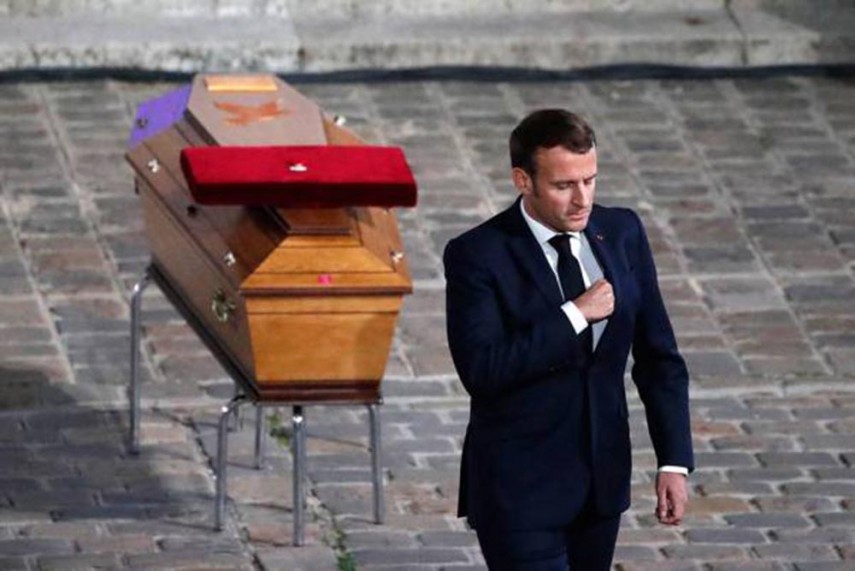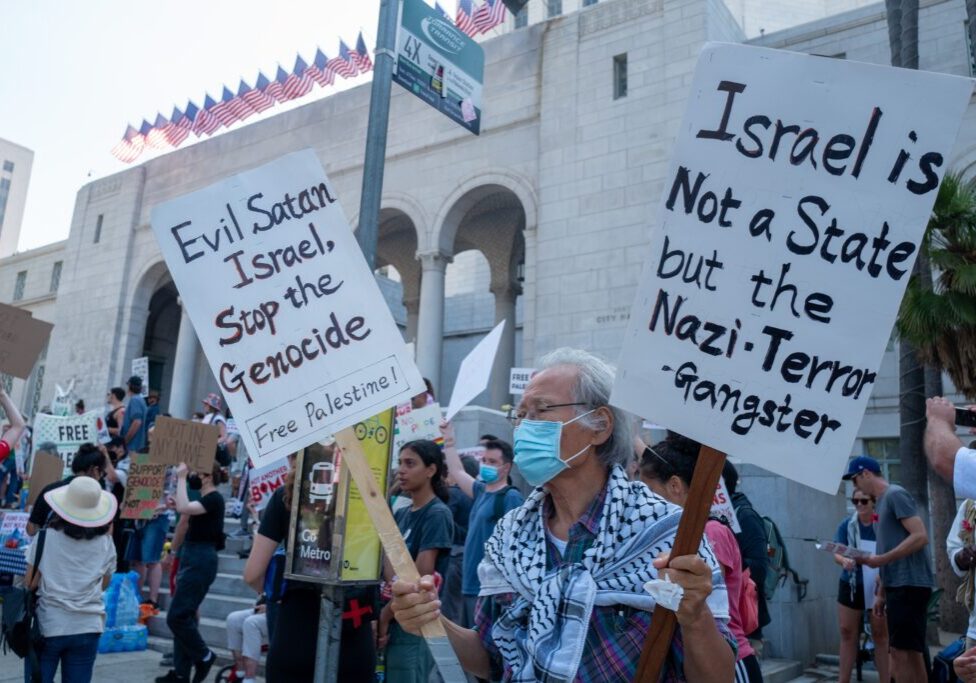Australia/Israel Review
Europa Europa: Easy Targets
Nov 27, 2020 | Douglas Davis

Last month, Vienna joined a growing list of European cities – Paris, London, Manchester, Brussels, Nice, Berlin – which have been the site of major jihadist terror attacks over the past five years. A gunman took four lives on the streets of Vienna.
The attack came a few weeks after a vicious attack in Paris by an 18-year-old Moscow-born Chechen. A teacher, who had chosen to illustrate a lesson on free expression by displaying cartoons of the Prophet Muhammad, was beheaded outside the school gates. The attacker was shot dead by police.
Two weeks later, a Tunisian man stabbed three people to death outside a Catholic cathedral in Nice. The attacker had arrived in Italy by boat a few weeks previously.
Perhaps it is the enormous challenge of coronavirus or simply the bad weather, but French President Emmanuel Macron has abandoned any pretence of soft power or under-the-counter concessions in exchange for peace on the streets of Paris.
He knows that Europe is an easy target for a killer who wants to secure maximum exposure at minimum cost. That is why he has been galloping into battle in defence of what were once regarded as Western values.
Macron described Islamist separatism as a “political and religious” project that advocates “deviations” from the values of the French Republic. This often resulted, he said, in the constitution of a “counter-society,” in which children are taken out of school, and cultural activities are used as a pretext to teach principles that “do not conform” to French law. It is an “indoctrination” that negates French principles, “equality between men and women,” as well as “human dignity”.
“We believe in the Enlightenment and in women having the same rights as men,” he said. “People who think otherwise, let them do it somewhere else, not on French soil.”
Macron noted that Muslim radicals have created their own hermetically sealed eco-systems in European cities, and has sought a law that would give the state greater scrutiny of France’s mosques. He is particularly concerned about the estimated 300 foreign-trained imams in France, about half of whom emanate from Turkey.
Under Macron’s law, they would have to be strictly vetted, while Muslim organisations would have to promise to respect the secular nature of the country. Homeschooling would be curtailed, and state schools would be open for three-year-olds, ensuring that French civic values were inculcated at an early age. Macron’s goal is to fight those who embrace radical Islam, while protecting the middle-of-the-road worshipper.
Austria’s Chancellor Sebastian Kurz has joined Macron in declaring a common European front in a “war on Islamism” – a civilisational struggle between Western values and a politicised version of an extremist interpretation of the Islamic faith. Kurz intends to build an alliance against Islamist ideology at the next summit of EU leaders, as the Austrian security services investigate the Viennese attacker’s suspected ties to extremists in other countries, including Switzerland.
“I expect an end to the misconceived tolerance and for all the nations of Europe to finally realise how dangerous the ideology of political Islam is for our freedom and the European way of life,” Kurz told the German daily Die Welt.
A central pillar of the European Union is likely to be the first victim of the Macron-Kurz approach. The two men agreed to a hastily arranged summit last month to seek a suspension of the Schengen Agreement, which permits frictionless travel throughout Europe.
“We are happy to live without internal borders but we can only do so if we protect our external borders,” said Kurz. “If we don’t protect our external borders, [free movement within EU states] will be threatened on the inside.”
The existing European Border and Coastguard Agency has 1,500 officers, which France says is woefully inadequate to prevent illegal migrants entering via countries such as Greece and Italy. France is pressing it to accelerate a plan to increase the number of officers to 10,000.
Meanwhile, Europe is not alone in facing threats from jihadist ambitions. Islamists have now focused on southern Africa as the site of their next caliphate and dozens of villagers are said to have been massacred in northern Mozambique last month in a three-day rampage by jihadists. Women and children are reported to have been beheaded and their bodies dismembered.
The jihadists, who have pledged allegiance to Islamic State, have already launched attacks on neighbouring Tanzania and threatened violence in South Africa if it attempts to support Mozambique’s beleaguered army.
More than 2,000 people have reportedly been killed since fighting erupted in Mozambique in 2017 and 712,000 more have been left in need of aid. Analysts say an uprising by a few dozen young locals, angry at the neglect of their region by the government in Maputo, has been exploited by Islamic State.
Now, more than 4,000 Islamist fighters have joined forces to battle Mozambique’s military and the foreign mercenaries brought in from Russia and South Africa by the Mozambique regime.
This is perhaps surprising given that only some 18% of Mozambique’s population is Muslim.
Yet jihadist violence continues to pop up in new places and unexpected forms – looking for any easy targets.
Tags: Europe, France, Islamic Extremism, Terrorism






